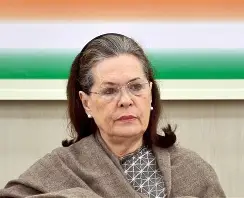After decades of delays, a Delhi court handed Sajjan Kumar a life term for orchestrating violence in the 1984 anti-Sikh riots. Convicted for the brutal killings in Saraswati Vihar, the ex-MP’s fate marks a rare reckoning for the carnage that claimed over 3,000 lives.
BY PC Bureau
The bustling corridors of Delhi’s Rouse Avenue Court fell silent on February 25 morning as Special Judge Kaveri Baweja delivered a verdict that reverberated through India’s legal and political landscape. Sajjan Kumar, a former Congress MP and a towering figure in Delhi politics for decades, was sentenced to life imprisonment for his role in the brutal murder of a father and son during the 1984 anti-Sikh riots.
The decision marked the latest chapter in a 40-year struggle for justice, one steeped in trauma, political intrigue, and the unrelenting pursuit of truth by survivors of one of India’s darkest episodes.
Special Judge Kaveri Baweja delivered the verdict on the killing of Jaswant Singh and his son, Tarundeep Singh, which took place on November 1, 1984.
The prosecution, along with Jaswant’s wife, had sought the death penalty for Kumar. While murder carries a maximum sentence of the death penalty, the minimum punishment is life imprisonment.
Kumar was convicted on February 12, after which the court ordered a psychiatric and psychological evaluation from Tihar Central Jail, following a Supreme Court directive for cases where capital punishment is considered. He has been in Tihar Jail since 2018 in connection with another anti-Sikh riots case in Delhi Cantt.
The Background: A Nation in Flames
The story begins on October 31, 1984, when Prime Minister Indira Gandhi was assassinated by her Sikh bodyguards, plunging India into chaos. The killing sparked a wave of retaliatory violence against the Sikh community, particularly in Delhi, where mobs—often led by political figures—unleashed a reign of terror. Over three days, more than 3,000 Sikhs were slaughtered nationwide, with Delhi bearing the brunt of the carnage. Homes were looted, gurdwaras torched, and families torn apart in what the Delhi High Court would later call “crimes against humanity.”
‘“40 Years Later: Sajjan Kumar Gets Life for 1984 Sikh Riots Murders
Sajjan Kumar, then a rising star in the Indian National Congress and a Member of Parliament from Outer Delhi, emerged as a central figure in the allegations that followed. Survivors and witnesses pointed to him as a ringleader, accusing him of inciting and directing mobs to target Sikhs in areas like Raj Nagar, Sultanpuri, and Saraswati Vihar. A fact-finding report by the People’s Union for Civil Liberties and People’s Union for Democratic Rights later concluded that the riots were not a spontaneous outburst but a calculated attack orchestrated by Congress politicians, with Kumar frequently named as the “mastermind” in Delhi’s worst-affected neighborhoods.
In the Saraswati Vihar case, the focus of his latest conviction, Kumar was accused of leading a mob on November 1, 1984, that descended upon the home of Jaswant Singh and his son, Tarundeep Singh. The mob, armed with lathis, iron rods, and kerosene, beat the father and son mercilessly before setting them ablaze. Jaswant’s wife and daughter, who tried to shield them, were injured in the assault—his wife suffering a fractured hand as attackers ripped off her bangles. The family’s house was looted and burned to the ground, a grim testament to the violence that engulfed Delhi that week.
A Long Road to Accountability
For years, justice remained elusive. Initial investigations by the Delhi Police were widely criticized as shoddy and biased, with allegations that officers deliberately omitted Kumar’s name from witness statements. A charge sheet implicating him was prepared in 1992 but mysteriously never filed, fueling suspicions of a cover-up shielded by political patronage. Kumar, a three-time Lok Sabha MP and a loyalist of Indira Gandhi’s son Sanjay, continued his political career unabated, winning elections and wielding influence even as survivors languished in refugee camps, their cries for justice drowned out by indifference.
The tide began to turn in 2005, when the Justice G.T. Nanavati Commission recommended transferring Kumar’s case to the Central Bureau of Investigation (CBI). The CBI’s probe uncovered a “conspiracy of terrifying proportion” between Kumar and the police, alleging that he had orchestrated the violence with impunity. In 2010, Kumar faced trial for murder, rioting, and criminal conspiracy, with eyewitnesses recounting how he rallied mobs with inflammatory speeches, reportedly offering Rs. 100 and liquor bottles to attackers.
Yet, the legal process was a marathon of setbacks. In 2013, a lower court acquitted Kumar in the Raj Nagar case—where five Sikhs were killed—prompting outrage among victims’ families. The CBI appealed, and in December 2018, the Delhi High Court overturned the acquittal, sentencing him to life imprisonment for that massacre. Kumar resigned from Congress the next day, his political career in tatters, but he remained defiant, appealing the verdict to the Supreme Court, where it still lingers.’
sajjan kumar congressi leader who was involved in 1984 sikh riots got life imprisonment…
finally justice to victims…. pic.twitter.com/sQISo2IttW
— Suraj🇮🇳 (@suraj_Hindustan) February 25, 2025
The Saraswati Vihar case, however, persisted as a separate thread of accountability. Reopened in 2015 by a Special Investigation Team (SIT) formed under Prime Minister Narendra Modi’s government, the case gained momentum when Jaswant Singh’s widow identified Kumar in a 2016 statement, recalling his bearded figure at the head of the mob after spotting his photo in a magazine months after the attack. Her testimony, delayed by years of fear and bureaucratic inertia, became the linchpin of the prosecution’s case.
ALSO READ: China Forces 1 M Tibetan Children into “Culture-Wiping” Schools
The Verdict: A Bittersweet Triumph
By February 2025, Kumar, now 79 and already incarcerated in Tihar Jail for the Raj Nagar conviction, faced the culmination of the Saraswati Vihar trial. The prosecution, led by Additional Public Prosecutor Manish Rawat, painted a chilling picture: Kumar as the architect of a mob that executed Jaswant and Tarundeep with ruthless precision, their deaths part of a broader assault on Sikhs to avenge Indira Gandhi’s killing. Senior advocate H.S. Phoolka, representing the victims, argued that the riots were a genocide, not isolated crimes, and pressed for the death penalty, citing precedents like the Nirbhaya case.
Kumar’s defense, led by advocate Anil Sharma, countered that the widow’s testimony came too late—seven years after the riots—and was unreliable. They pointed to inconsistencies and the pending Supreme Court appeal in the Raj Nagar case, urging leniency. But on February 12, 2025, Judge Baweja convicted Kumar, declaring that the prosecution had proven his guilt “beyond reasonable doubt.” The evidence—oral accounts, SIT findings, and the pattern of his alleged involvement across multiple riot sites—formed an unassailable chain.
The sentencing hearing on February 25 was tense. Outside the court, Sikh community members protested, holding placards demanding death for Kumar, their voices hoarse with decades of pent-up grief. Inside, Rawat reiterated the call for capital punishment, labeling the murders a “rarest of rare” case. Phoolka echoed this, arguing that Kumar’s actions targeted a minority with genocidal intent. The defense pleaded for mercy, citing Kumar’s age and existing life term.
Judge Baweja, after hours of deliberation, opted for life imprisonment, aligning the sentence with Kumar’s prior conviction. “The accused’s role in instigating and abetting the mob is undeniable,” she said, her voice steady. “But the court must balance justice with the principles of law.” Kumar, frail and expressionless, was escorted back to Tihar, his fate sealed for the remainder of his days.
The Aftermath: A Legacy of Reckoning
For the Singh family and thousands of other survivors, the verdict was a bittersweet victory—vindication after 40 years, yet a reminder of justice’s agonizing pace. BJP leaders hailed it as proof of Modi’s commitment to reopening riot cases, while Congress distanced itself from Kumar, a figure it had once shielded. On the streets of Delhi, whispers of “too little, too late” mingled with relief that another piece of 1984’s bloody puzzle had been addressed.
As the sun set over the capital, the scars of that November week lingered—etched in memory, in the rebuilt gurdwaras, and in the eyes of those who survived. Sajjan Kumar’s life term was not an end, but a marker: a testament to resilience, a warning to power, and a fragile step toward healing a wound that still bleeds.













